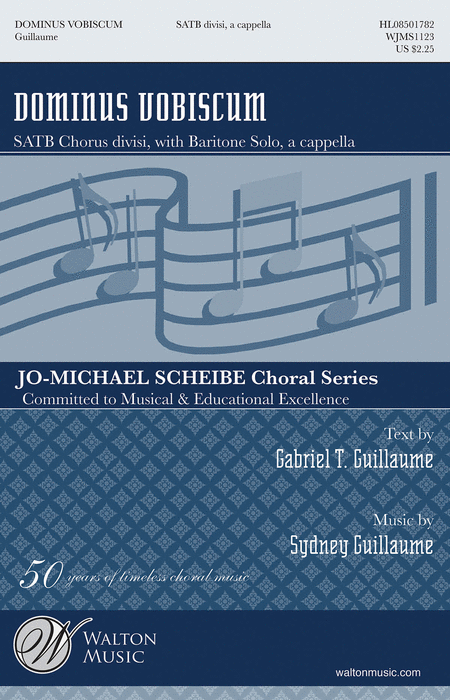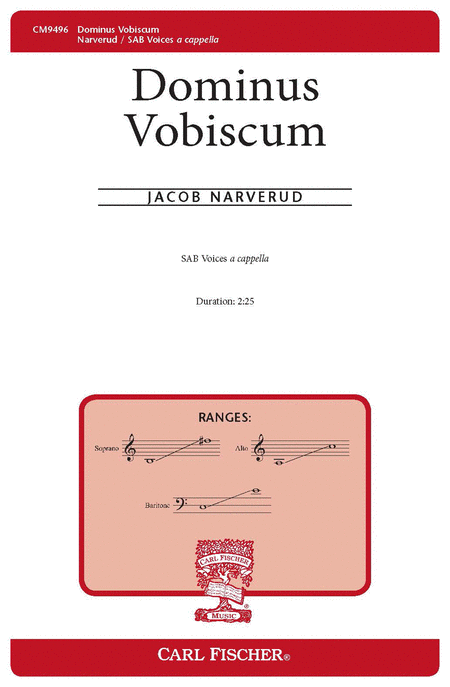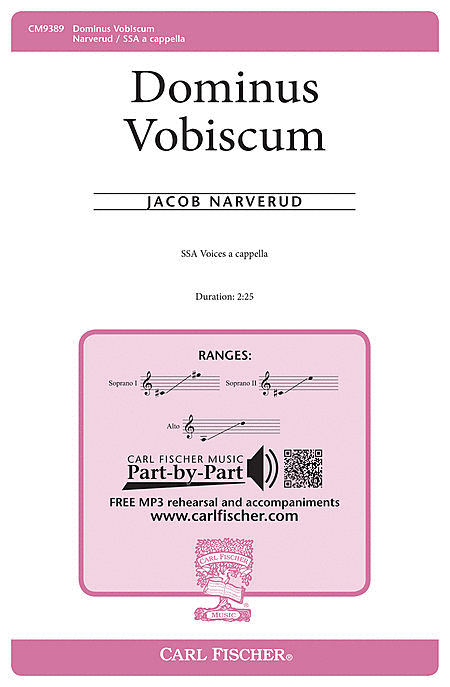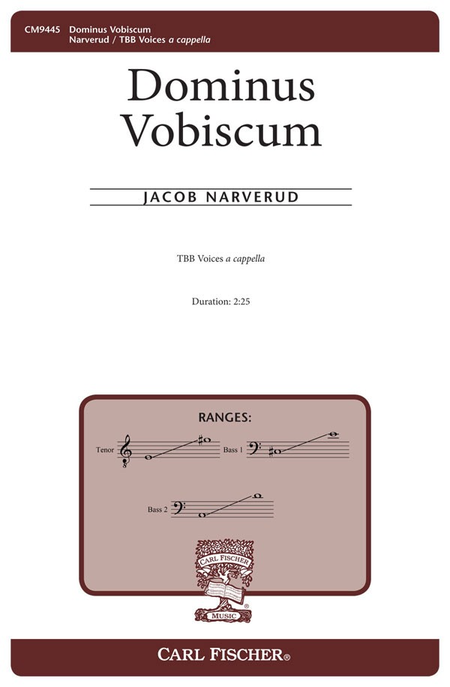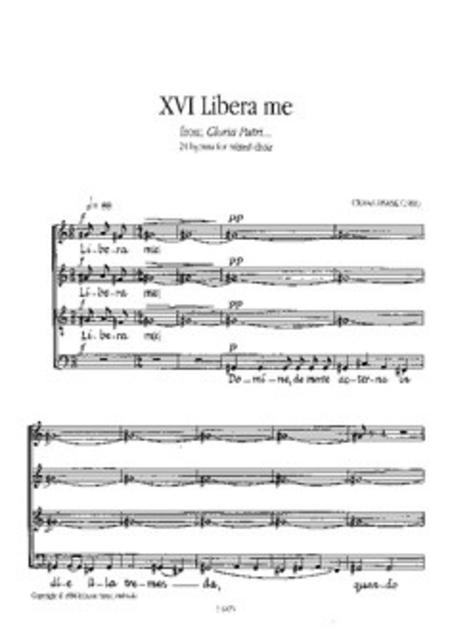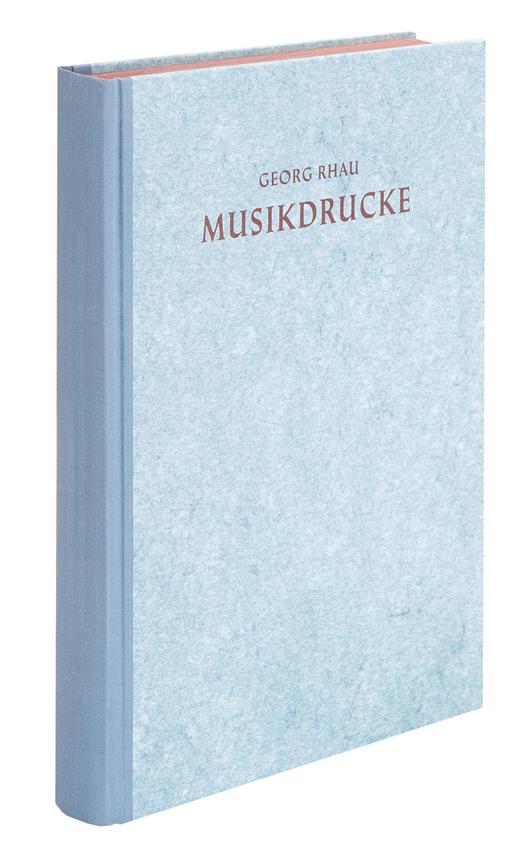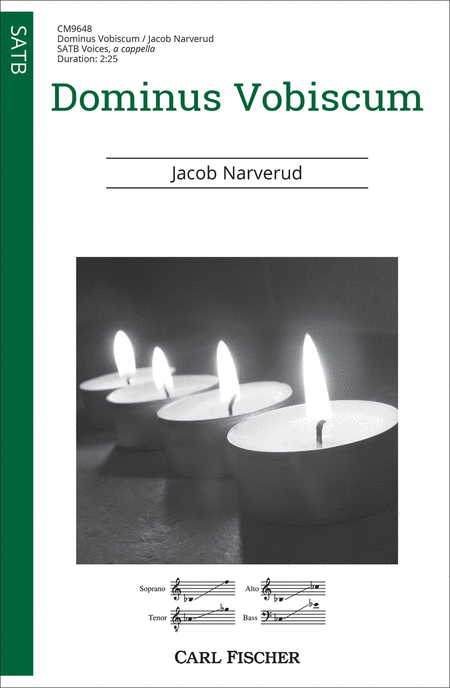 | Composed by Jacob Narverud.
Fold. Octavo. 8 pages.
Duration 2 minutes. Carl
Fischer Music #CM9648.
Published by Carl Fischer
Music Arr : Choral SATBPublisher : Carl Fischer$2.25 - See more - Buy online
ISBN 9781491157206. 6.875 x 10.5 inches. Key: Eb minor. Latin. Christian Liturgy.
Jake Narverud's setting of this prayer of peace is powerful! From the opening unison chant to the final "amens," it is infused with interesting harmonies, meter, and rhythm. Choirs will feel empowered when learning and performing this piece, originally commissioned for director Christy Elsner's Allegro con Brio Choir. Also available for SSA Voices (CM9389), SAB Voices (CM9496) and TBB Voices (CM9445).
"The Lord be with you. Peace, we leave with you and with your spirit. Amen." The opening chant may be sung by a soloist, a small group or the entire choir. It is important to remember that chant is "sung speech," where the words are the primary source of interpretation. The tempo of a phrase should correspond to the rhythmic flow of speech used by a good public speaker. The dynamic level should also be directly related to the ebb and flow of each line. The syllabic stress for each word provides the energy and momentum for the syllables that follow (e.g.: DAW-mee-noos). Forward movement, especially through bar lines, should be applied when singing chant. Singing each line on a neutral syllable, "doo" or "doh," can be a great teaching tool when first learning the notes and rhythms. A resonant, mature sound with little to no vibrato is desired to keep with the simplistic style of chant singing. Tempo is relative; feel free to savor both the dissonant and consonant moments of the piece, and milk the ends of the phrases. Allow for the silence between sections and phrases to become an integral part of the overall performance. Pure Italian-Latin vowels are desired, including dental "T's". Work to unify each vowel throughout melismatic lines and at phrase endings. Try singing each phrase on only vowels to focus on creating a legato line. Once that is achieved, add the consonants back. The exposed nature of this piece can provide great teaching moments to allow for extremely careful listening and singing by the choir members. Demand precise intonation throughout. This composition offers the opportunity to sing in a different key, one that best showcases the strengths of the ensemble. Feel free to find the tonal center that works best for the needs of your ensemble. |
|

 (AMERICAN COMPANY)
(AMERICAN COMPANY) 
